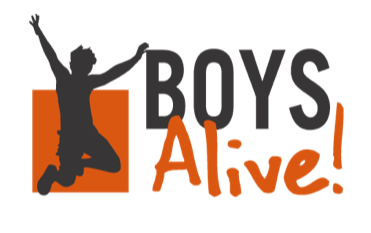Restoring the Heart
Near or far, we ALL lived through Hurricane #Harvey. Just as we all lived through #Irma, #Sandy, #Maria…
When media is hyping the next big storm or disaster - it takes a physical and emotional toll on ALL of us.
It stirs anxiety, fear, wonder, anticipation, and may even re-open past traumas. Neighbors help neighbors, community groups, and national organizations all pitch-in to restore services, and do the work needed to get back to "normal" everyday life.
But how do we restore our hearts after a disaster?
You’ll rarely find an article on "How-to Restore Your Heart After a Disaster" in the media. Sure, our hearts are uplifted by the stories of “everyday” heroes – thank goodness. Those stories are a counterbalance to the sorrow of lives lost, and lives disrupted. While we work hard physically, and feel sorrow, we can’t ever really know the long-term health impacts of a disaster. A hurricane...
Or a fire.
Make that fires. There are so many notable fires that have raged in the past few years that it feels impossible to count them, much less comprehend them.
And our hearts ache on…
As I wrote this blog post, my beloved Oregon icon – the Columbia Gorge - was engulfed in flames, raining ash and spewing smoke. Our hearts ache more as it was revealed that this fire was started by “some boys .”
What were they thinking?!
How could they NOT KNOW that the forests were tinder-dry on this hot day at the end of summer? How could they NOT put 2-and-2 together: fireworks + forests = wildfire. How could they NOT match consequences with their actions?
Is it just “boys-will-be-boys”?
One of “the boys” was 15.
The teen brain is clearly NOT fully able to measure risk and calculate consequences at that stage of development. (See Brainstorm by Dr. Daniel J. Siegel, M.D.) Many boys of this age make stupid mistakes. (Any grown man can probably share at least a handful of stupid mistakes they made in these tween-teen years. Most were not as catastrophic as this absence of judgment, fortunately.)
What about the parents?
Where were they? What were they doing that day? What is their connection to nature and responsibility for the land? Maybe they were working, stressed out, trying to just make the rent this month? Maybe they have health or relationship issues? It’s a part of the story we may never know.
Whatever happened to SMOKEY?
He still makes for a cute t-shirt but according to a retired teacher-cousin of mine, they don’t teach fire safety like they used to.
Isn’t it time to bring Smokey back?
Maybe #REI or #Columbia Sportswear makes this an ad campaign? “
Only YOU can Prevent Forest Fires,” just makes sense.
I wonder about “those boys”…
I wonder what the outcry would be right now if they were African-American, or Latinx, or Muslim? I have no answers, I just wonder.
I wonder what the outcry will be for their punishment?
Monetary restitution for the millions of dollars already spent is unrealistic. Prison time for their juvenile wrong-doing, their careless mistake, doesn’t serve anyone, other than to ruin a life which may have potential far beyond what we can know right now.
A recent Oregonian editorial suggested that they be OF SERVICE. (I can’t help but interject here that if there already were programs in place for them to have already been ‘of service’ – this event may have never unfolded. If “those boys” had a channel for their energy – a place that gives them natural positive and negative feedback – their sense of responsibility to people and nature may have been nurtured in a more realistic, more connected way.)
Can we move the future of “these boys” towards the positive?
Can we, as a community, be caring enough to help them cope with the guilt they may carry for the rest of their lives? Will we care enough to help them process this recklessness rather than letting them numb themselves (drugs, alcohol, more reckless behavior) so they don’t have to cope with the consequences of what they have done?
Can we be generous enough to let them be “of service”?
Get them out on the trail – cleaning up, cutting brush, re-building trails, planting trees. A year would not be too long. Get them out in the community – send them into schools, record public service announcements, etc. Let them be the teachers. Let them take up Smokey Bear’s message and be the ones to educate others.
(Even as I write that, I can’t help but think of all the other “boys” who have pulled pranks and taken risks that have gone awry and I acknowledge there may be boys sitting in prison, or boys locked inside themselves with no way out other than anger, violence or withdrawal. And my heart wonders what we’re doing for them.)
Ultimately, it points out the necessity for ALL OF US to stay in communication and engagement with our boys, keeping them connected to others – giving them responsibilities into which they can grow and become men that we admire – men with heart, too.
*** UPDATE****
In May, 2018, the boy who set the fire was ordered to pay $36.6 million in restitution, as reported in The Oregonian, although the judge acknowledged that he would never be able to pay it. The boy wrote an apology "to everyone in the gorge." And was sentenced to 1,920 hours of community service and five years of probation.
============================
*Join the Boys Alive! community below for updates and more.*


